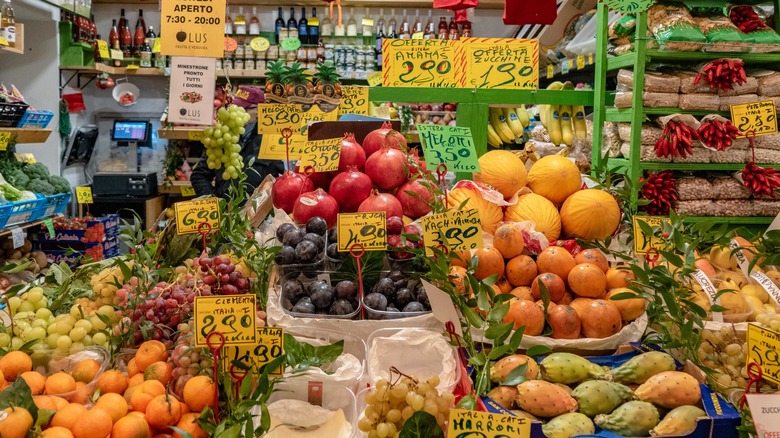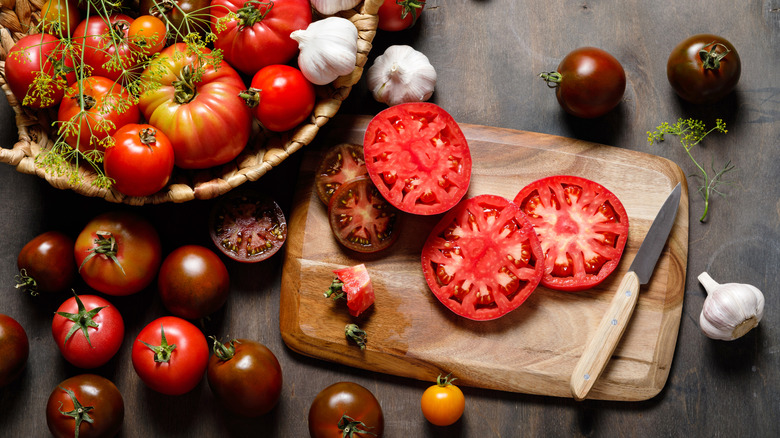The Crucial Italian Produce Tip You Should Know
The phrase "When in Rome, do as the Romans do" is never more true than when it comes to food. The Italians are famous for having one of the tastiest cuisines in the world, and to uphold this standard, they have a lot of rules — what ingredients to use, what foods pair well, and the order in which dishes should be consumed. If your experience with Italian food is limited to Italian American restaurants, there is much to learn about dining in the motherland. For instance, it's good to understand ahead of time that you shouldn't order a cappuccino after dinner in Italy; you also may not find garlic bread and will probably be confused buying pepperoni there.
But although you may not find some of the Italian American foods you're used to in Italy, don't let that discourage you — when eaten properly, authentic Italian meals are unparalleled. Here's one rule that should be easy to follow: when going out for pizza, don't try to share, as most restaurants expect adults to order an entire pizza for themselves (via Frommers). Also, stick to water or wine when eating a meal, as The Foodellers explains that servers will be extremely disappointed if you attempt to pair a cappuccino with a main course, although they will probably still serve it to you. And when shopping for produce, make sure to keep this essential advice in mind.
In Italy, seasonal eating reigns supreme
One of the reasons Italian food is so delicious is that they try to use only the freshest ingredients available. A caprese salad, for instance, is only as good as the tomatoes used — fresh ones will bring sweetness and juiciness, while out-of-season tomatoes may be more acidic. According to The Italian Kitchen, garlic, basil, tomatoes, and herbs like rosemary and parsley are among the essential ingredients that should be used fresh.
An easy way to ensure you're getting the best produce possible in Italy is to only buy fruits and vegetables that are in season. In fact, Italy takes this rule so seriously that you'll rarely find out-of-season produce in markets and restaurants, according to Fodor's Travel. Unlike major American grocery stores, where you can find all kinds of imported fruits and vegetables year-round, you may only find cabbage in December, oranges in January, and almonds in February in Italy (via Walks of Italy).
Holiday traditions also play a big role in Italy's seasonal eating. According to Devour Tours, fava beans are heavily consumed on May 1st, a national holiday, while shellfish are staples in traditional Christmas Eve dinners. So when you're planning your next trip to Italy, don't expect to find every food available at all times — but you can expect to eat delicious meals, no matter which season you travel there.

